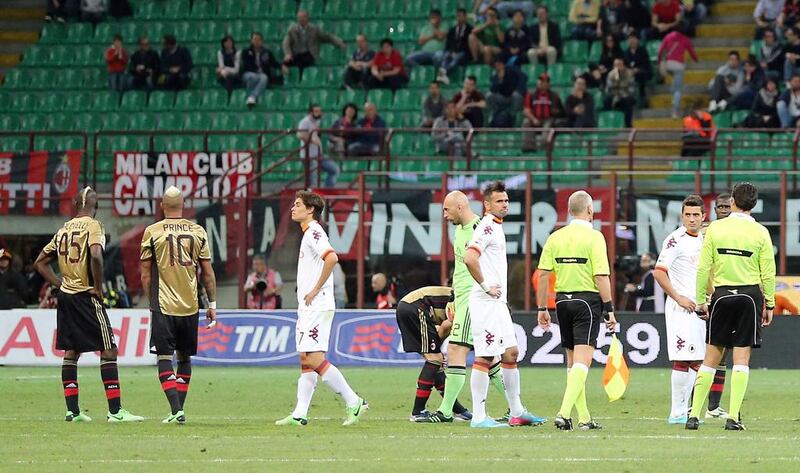Italian fans have claimed a significant victory over what they regard as pedantic and spoilsport manoeuvres to stop them from singing mocking chants at opposition supporters.
A decision to close the stands at San Siro for AC Milan versus Udinese this weekend has been overturned, pending further investigation. Milan were initially punished because some of supporters were found to have used “territorially discriminatory” language, aimed at Napoli, during a match against Juventus this month.
Most people who attend Serie A games would recognise those chants and the sorts of words they include: references to Naples’ reputation for crime, or bad public hygiene. Charmless stuff, but in the context of a football arena, is it not essentially harmless?
That has been the argument of outraged Milan fans.
At the San Paolo, a banner was held up by Napoli’s ultras referring to themselves as “Cholera-sufferers” and suggesting they, too, be banned, for using an insult sung at them. The implication is: these taunts are part of our culture, they reckon, and authorities will have many empty stadiums if they punish every utterance of them.
There is an important aspect to this argument. Italian football’s priority in regulating behaviour in grounds should be eliminating racist abuse, a continuing and vile problem. If the approach of the authorities implies that racist abuse is part of continuum that extends into what fans call traditional banter, they risk no longer sending a clear signal on the principal issue, which is racism.
sports@thenational.ae
Follow us on twitter at @SprtNationalUAE






